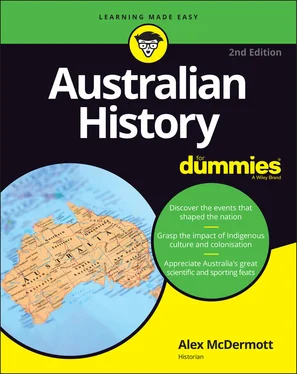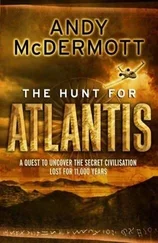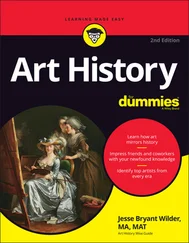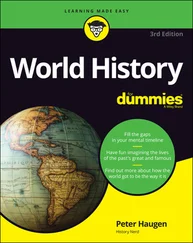At 21, Joseph came into his inheritance (his father having died when Joseph was 18). Leaving Oxford without bothering to finish his degree, Banks didn’t do the usual thing expected at the time of a young gentlemen of large fortune (go on the ‘Grand Tour’ of Europe) but instead went off on a naturalist tour of Newfoundland and Labrador in North America. By curious coincidence, around the same time Cook was charting the coast of Newfoundland, Banks was amassing a huge collection of the island’s natural specimens.
Banks was knighted in 1781.
In 1768, the Royal Society (a learned society originally set up by Royal Charter a century before for the advancement of scientific knowledge, and of which Banks was a member) managed to persuade the British Admiralty to send an expedition to observe the transit of Venus on the Pacific Island of Tahiti (the weather forecast for England that year being overcast with rain).
By this time, Cook was a lieutenant in the Royal Navy and he was selected to command the expedition. The Royal Society suggested Banks, ‘Gentleman of large fortune … well versed in natural history’, along with his ‘suite’, could accompany Lieutenant Cook on the voyage. Banks’s suite was a cast of eight — naturalists, artists and servants — there to help him pick, pluck, catch and collect as many new zoological and botanical specimens as possible, and draw, describe and preserve them as well.
As well as observing the transit of Venus, however, the British Admiralty also gave Cook a set of secret instructions to follow: To establish once and for all if the ‘Unknown Southern Land’, or ‘Terra Australis Incognita’ was anything more than a pipe dream. If it was there, and Cook found it, he was told claiming it for Britain mightn’t be a bad idea.
Setting (British) eyes on New South Wales
After observing the transit of Venus in Tahiti, Cook sailed south and then west expectantly, but what he found was just more Pacific Ocean. Charting New Zealand, he sailed further again, finding nothing until encountering the bottom south-east corner of what was known as New Holland — where Victoria and New South Wales meet each other today. This was disappointing, all things considered, but at least there was a nice lot of charting to do. Just as he’d done in New Zealand, Tahiti, Newfoundland and Nova Scotia, Cook set about surveying the coastline he was passing. Banks, meanwhile, gathered new and previously unknown zoological specimens everywhere they stopped, surely feeling a lot like a kid who’d just been let loose in a completely untouched (to European eyes, at least) lolly shop.
 Banks didn’t think much of the land, though. He’d later change his tune significantly, but at the time he said it was without doubt ‘in every respect the most barren country I have seen’. The soil was sandy, the grass thin and the water scarce. Although he’d had the time of his life catching and picking specimens, he didn’t think the place was particularly good to settle in or trade with. The most he could allow was that, perhaps , if they were lucky, a group of people ‘who should have the misfortune of being shipwreckd [sic]’ might be able to support themselves.
Banks didn’t think much of the land, though. He’d later change his tune significantly, but at the time he said it was without doubt ‘in every respect the most barren country I have seen’. The soil was sandy, the grass thin and the water scarce. Although he’d had the time of his life catching and picking specimens, he didn’t think the place was particularly good to settle in or trade with. The most he could allow was that, perhaps , if they were lucky, a group of people ‘who should have the misfortune of being shipwreckd [sic]’ might be able to support themselves.
Cook, having sailed up the Pacific coast of Australia in the Endeavour , reached the top of the east coast in August 1770. He claimed possession of the entire coast and planted the flag on the rather unimaginatively titled Possession Island (at the top of modern-day Cape York in far-north Queensland). Later on, noting it down in his journal, he racked his brain for a good name for the coast he’d just claimed (without asking any of the Indigenous Australians he’d encountered along the way what they thought of the idea, obviously). He first tried New Wales and then must have said to himself at last, ‘Here’s just the thing’, and wrote down New South Wales.
On Cook’s return to Britain from this first great voyage (he would go on two more before his voyaging ended abruptly in Hawaii) he was promoted to captain.
New South Wales (NSW), which had been charted and claimed by Cook, turned out to be the right place at the right time. By the time Banks returned from the voyage of discovery, Britain was facing a few international and logistical issues that made founding a new colony a much more attractive proposition. A few years after his return, Banks (along with a few others) piped up with the novel idea of making NSW a new British settlement and, after a few Parliamentary Committees debated the issue, it was indeed chosen.
Quick! New settlement required
Britain didn’t decide to settle in a region as far-flung as NSW just because Cook had claimed possession of it. Those pesky commoners, those pesky Americans, and those pesky French, Spanish and Dutch all factored into the thinking.
Turing to crime in the 18th century
Along with a population boom, Britain in the 18th century experienced a period of rapid transformation — one that would produce a great deal more prosperity for more people but which also uprooted a lot of people from their traditional lives and livelihoods.
 A series of Enclosure Acts shifted people off the land, which led to the breakdown of traditional rural order in the 18th century. Before this, agriculture in Britain was mostly communal — each farmer would use a strip in three different fields to grow crops and would graze cattle on the common. This communal style was good for everybody but inefficient. No big improvements in agricultural production could be made until the communal fields were amalgamated into one big plot, which is what the Enclosure Acts did in the 17th and 18th centuries. While enclosure created lots more work (all the enclosing for starters — with fences and hedges — and the intense cultivation that followed), it drove out the smallholders from their traditional claims and people began moving from the country to the cities.
A series of Enclosure Acts shifted people off the land, which led to the breakdown of traditional rural order in the 18th century. Before this, agriculture in Britain was mostly communal — each farmer would use a strip in three different fields to grow crops and would graze cattle on the common. This communal style was good for everybody but inefficient. No big improvements in agricultural production could be made until the communal fields were amalgamated into one big plot, which is what the Enclosure Acts did in the 17th and 18th centuries. While enclosure created lots more work (all the enclosing for starters — with fences and hedges — and the intense cultivation that followed), it drove out the smallholders from their traditional claims and people began moving from the country to the cities.
Many people moved into cities such as Birmingham, Liverpool, Manchester and London, which offered plenty of job opportunities and, with no police force, plenty of crime opportunities too. As the town populations burgeoned, so too did the criminal underworld.
CONNECTING A FEAR OF POWERFUL KINGS TO BOTANY BAY
It’s a slightly roundabout way to get to Botany Bay, but real connections can be drawn between the political revolutions against the central state and the powerful kings of the 16th century in England, and the institution of transportation. And these connections produce a lot of the momentum to start a colony on the other side of the world in a just-discovered-by-us-practically-yesterday continent.
In what sort of country does shipping your convicted criminals off to the other side of a huge ocean seem like a good idea? In 18th-century Britain is the answer, and here’s why.
Britain was unique in 18th century Europe because it was a country governed essentially without police, and without a large army constantly ready to put down rebellions and keep order. One quirk of this system (or lack of system) was the form of punishment developed to deal with all the crime — transportation.
In the 17th and 18th centuries, most countries in Europe had established strong central states with plenty of power. (We could call these states ‘draconian’ if we were feeling impolite.) Kings, princes and assorted monarchs had established their right to rule as something absolute, ordained by God. In Europe, before the French Revolution, the ‘Divine Right of Kings’, or of ‘Absolute Monarchs’, was still a definite thing.
Читать дальше

 Banks didn’t think much of the land, though. He’d later change his tune significantly, but at the time he said it was without doubt ‘in every respect the most barren country I have seen’. The soil was sandy, the grass thin and the water scarce. Although he’d had the time of his life catching and picking specimens, he didn’t think the place was particularly good to settle in or trade with. The most he could allow was that, perhaps , if they were lucky, a group of people ‘who should have the misfortune of being shipwreckd [sic]’ might be able to support themselves.
Banks didn’t think much of the land, though. He’d later change his tune significantly, but at the time he said it was without doubt ‘in every respect the most barren country I have seen’. The soil was sandy, the grass thin and the water scarce. Although he’d had the time of his life catching and picking specimens, he didn’t think the place was particularly good to settle in or trade with. The most he could allow was that, perhaps , if they were lucky, a group of people ‘who should have the misfortune of being shipwreckd [sic]’ might be able to support themselves. A series of Enclosure Acts shifted people off the land, which led to the breakdown of traditional rural order in the 18th century. Before this, agriculture in Britain was mostly communal — each farmer would use a strip in three different fields to grow crops and would graze cattle on the common. This communal style was good for everybody but inefficient. No big improvements in agricultural production could be made until the communal fields were amalgamated into one big plot, which is what the Enclosure Acts did in the 17th and 18th centuries. While enclosure created lots more work (all the enclosing for starters — with fences and hedges — and the intense cultivation that followed), it drove out the smallholders from their traditional claims and people began moving from the country to the cities.
A series of Enclosure Acts shifted people off the land, which led to the breakdown of traditional rural order in the 18th century. Before this, agriculture in Britain was mostly communal — each farmer would use a strip in three different fields to grow crops and would graze cattle on the common. This communal style was good for everybody but inefficient. No big improvements in agricultural production could be made until the communal fields were amalgamated into one big plot, which is what the Enclosure Acts did in the 17th and 18th centuries. While enclosure created lots more work (all the enclosing for starters — with fences and hedges — and the intense cultivation that followed), it drove out the smallholders from their traditional claims and people began moving from the country to the cities.










